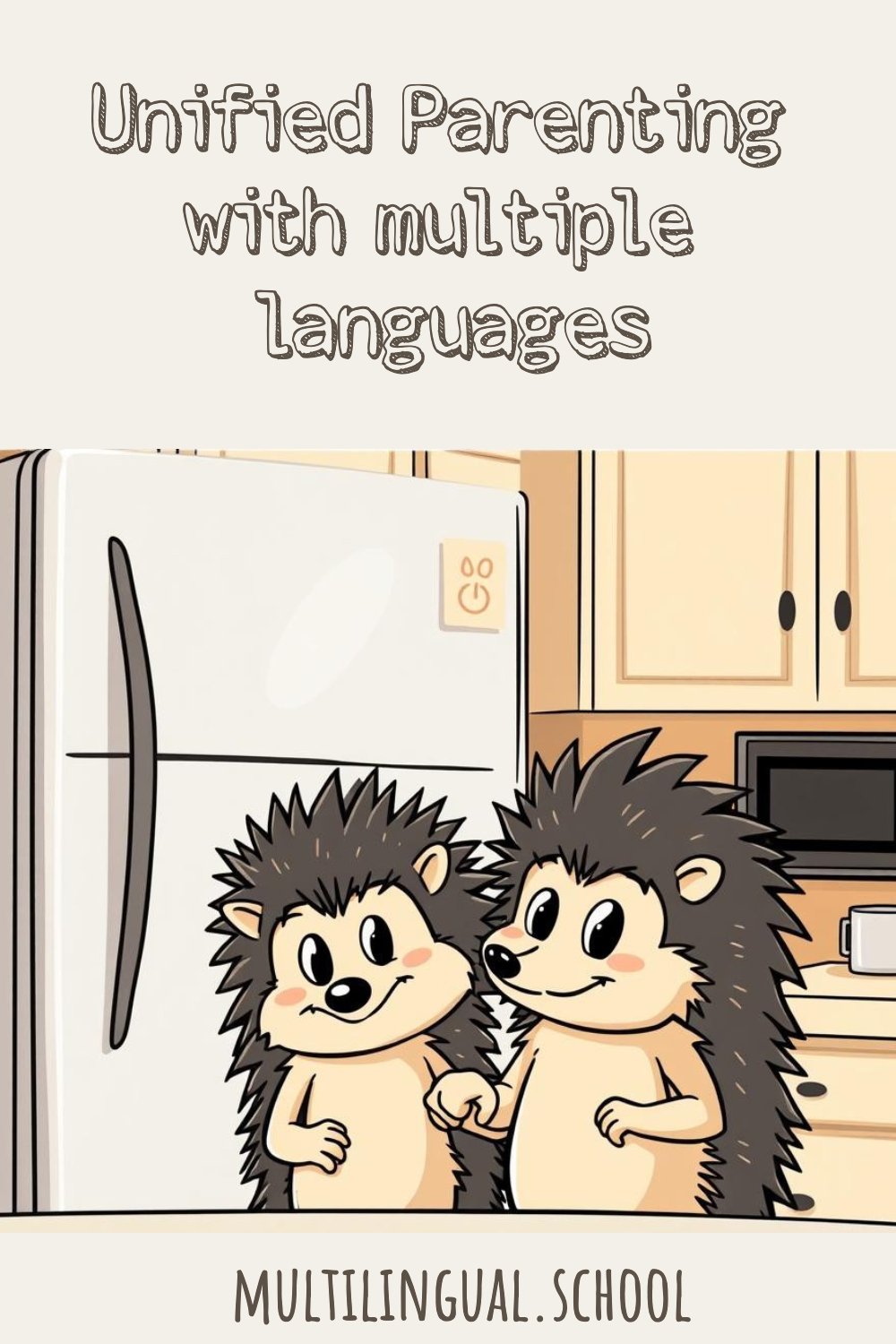Consistent Parenting with multiple languages
This post may contain affiliate links, which means that I may receive a commission if you make a purchase using these links. You do not pay a higher price.
Create a unified parenting foundation while maintaining language separation
Creating a consistent parenting approach while employing the One Parent, One Language (OPOL) approach can be a rewarding yet challenging task for multilingual families. This method not only promotes language development but also allows each parent to engage with their child in a language they are comfortable with. However, to avoid confusion and ensure a united approach in parenting, it is essential to adopt strategies that facilitate a harmonious balance of language use without creating friction between parents. You certainly want to be on the same page even if you speak to your child in different languages.
Here are three big tips that will help you as parents remain unified in your parenting style.
Unified approach to discipline and guidance
It is important to maintain a unified approach to discipline and guidance that transcends language boundaries. A consistent set of rules and values communicated in both languages supports a coherent parenting style. You as parents should discuss and agree upon disciplinary measures, expectations for behaviour, and the family’s values in your shared language to maintain alignment. When parents speak about rules and consequences in their specific languages, it is vital they utilise equivalent phrases or concepts to ensure that the child receives a consistent message regardless of the language spoken.
Finding common ground in parenting philosophies
Moreover, it is advisable to actively engage in finding common ground in your parenting philosophies and values, even when languages differ. Regular discussions about parenting practices, cultural perspectives, and language-specific expressions of affection and discipline can help to unify the approach. This dialogue ensures that both parents remain on the same page and reinforces consistent messaging to the child. You might also benefit from seeking resources, such as bilingual parenting workshops or online communities, to gain perspectives from others navigating similar challenges.
Preparing for exceptions to the rule of OPOL
Another essential consideration is how to navigate situations where a shared language between parents and child is necessary. This can for example be necessary to function as a family-bonding time, so that you can have a joint conversation at a table. Another example is that an exception to OPOL might become a requirement when dealing with emergency situations. If you as parents can talk about emergency scenarios upfront that most likely require or desire a joint family language, you won’t feel as overwhelmed and taken by surprise if that situation comes up.
In a nutshell, unified parenting takes a fair amount of alignment and meta-conversations. This is true for achieving unified monolingual parenting, and even more so for achieving unified multilingual parenting. The more you as parents can talk to each other about your own observations, challenges and aspirations, you will be able to master the skill of joint parenting while keeping your languages separate.













